Overview
Publications
Recruitment
Intranet
CIFRI Corners'
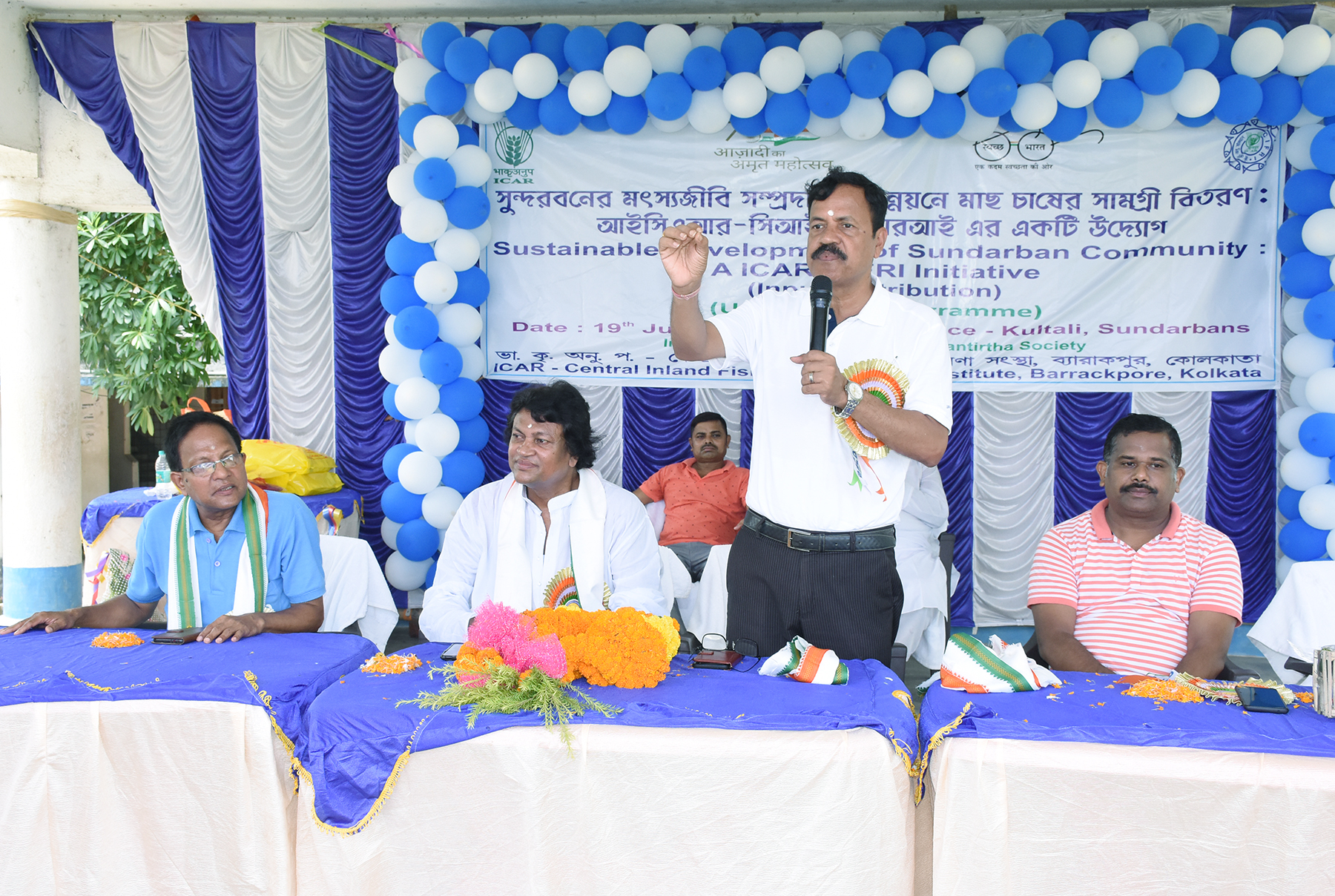 The largest deltaic region of the world “Sunderban” is designated as the Cyclone capital of India by the Indian Meteorology Department (IMD). Within the span of 1.5 years, the inhabitants have seen two consecutive cyclones (Jawad and YAAS). This Eco-wonder is the home of many endangered animals like the royal Bengal tiger, Irrawaddy dolphins, saltwater crocodiles, etc and nearly 3 million people are living inside it and directly or indirectly depend on it for their livelihood and other necessities. Extreme natural events like cyclones, storm surges, huge tidal surges, and saline water intrusion are causing major havoc on their culture activities, livelihood, and social lifestyle. People inhabiting this region basically depends on fish for major source of animal protein and rice as staple food. This is the reason fish is an integral part of their life and livelihood. Every household in this region have a small backward pond and mainly practice rice and fish culture. The major chunk of their harvest is for their own consumption with a little share (15-20%) for marketing.
The largest deltaic region of the world “Sunderban” is designated as the Cyclone capital of India by the Indian Meteorology Department (IMD). Within the span of 1.5 years, the inhabitants have seen two consecutive cyclones (Jawad and YAAS). This Eco-wonder is the home of many endangered animals like the royal Bengal tiger, Irrawaddy dolphins, saltwater crocodiles, etc and nearly 3 million people are living inside it and directly or indirectly depend on it for their livelihood and other necessities. Extreme natural events like cyclones, storm surges, huge tidal surges, and saline water intrusion are causing major havoc on their culture activities, livelihood, and social lifestyle. People inhabiting this region basically depends on fish for major source of animal protein and rice as staple food. This is the reason fish is an integral part of their life and livelihood. Every household in this region have a small backward pond and mainly practice rice and fish culture. The major chunk of their harvest is for their own consumption with a little share (15-20%) for marketing. 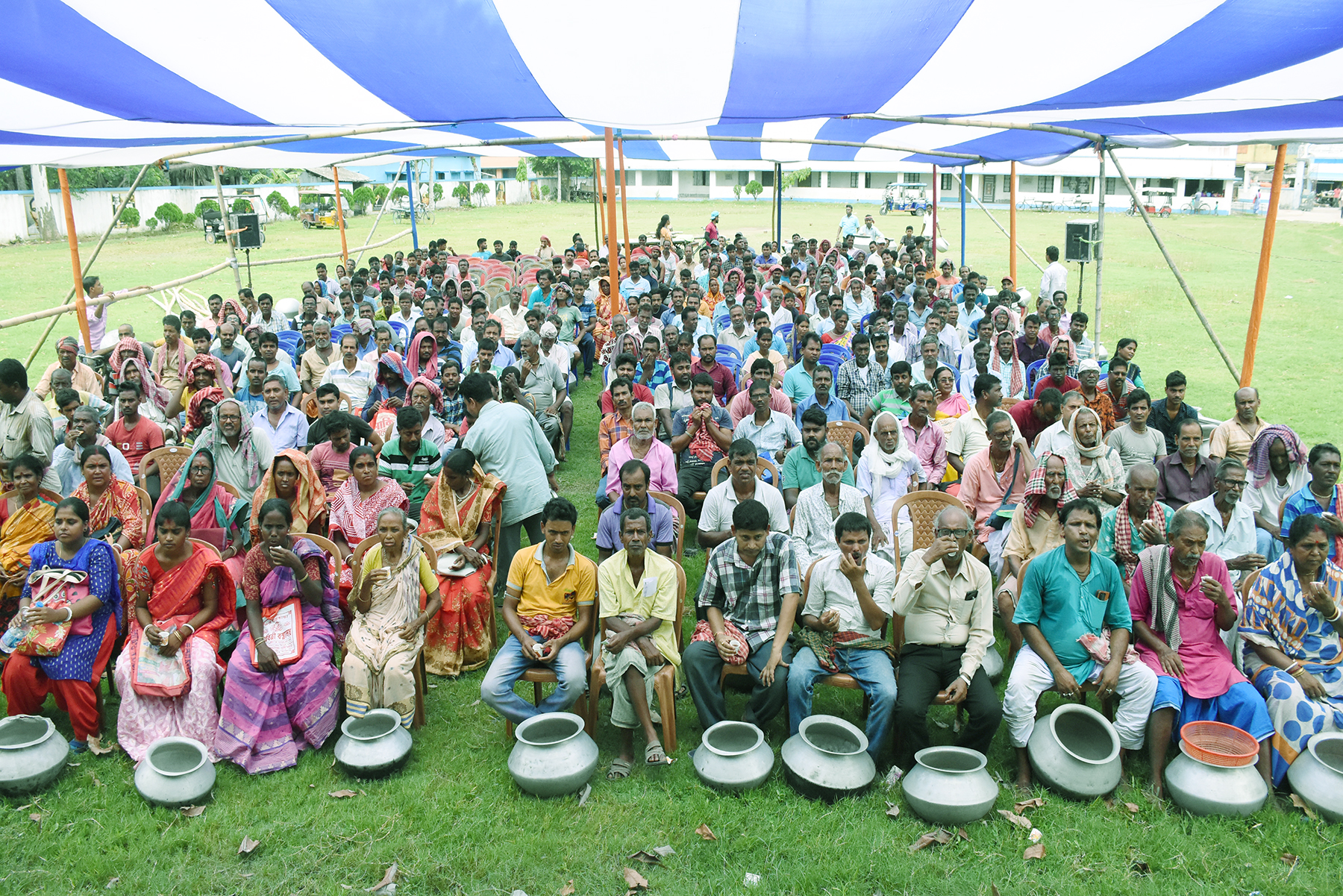 ICAR-Central Inland Fisheries Research Institute (ICAR-CIFRI) is tirelessly extending its support to the rural distressed fish farmers of Sunderban by providing various technological inputs for rejuvenating their livelihood under the SCSP /TSP development programs under the leadership of Dr. B. K. Das, Director, ICAR-CIFRI. As a part of these developmental activities, CIFRI has supported 500 fish farmers of Kultali, South 24 Parganas, West Bengal by providing inputs like fish seed, fish feed, lime, etc. along with technical support for the scientific fish farming.
ICAR-Central Inland Fisheries Research Institute (ICAR-CIFRI) is tirelessly extending its support to the rural distressed fish farmers of Sunderban by providing various technological inputs for rejuvenating their livelihood under the SCSP /TSP development programs under the leadership of Dr. B. K. Das, Director, ICAR-CIFRI. As a part of these developmental activities, CIFRI has supported 500 fish farmers of Kultali, South 24 Parganas, West Bengal by providing inputs like fish seed, fish feed, lime, etc. along with technical support for the scientific fish farming. 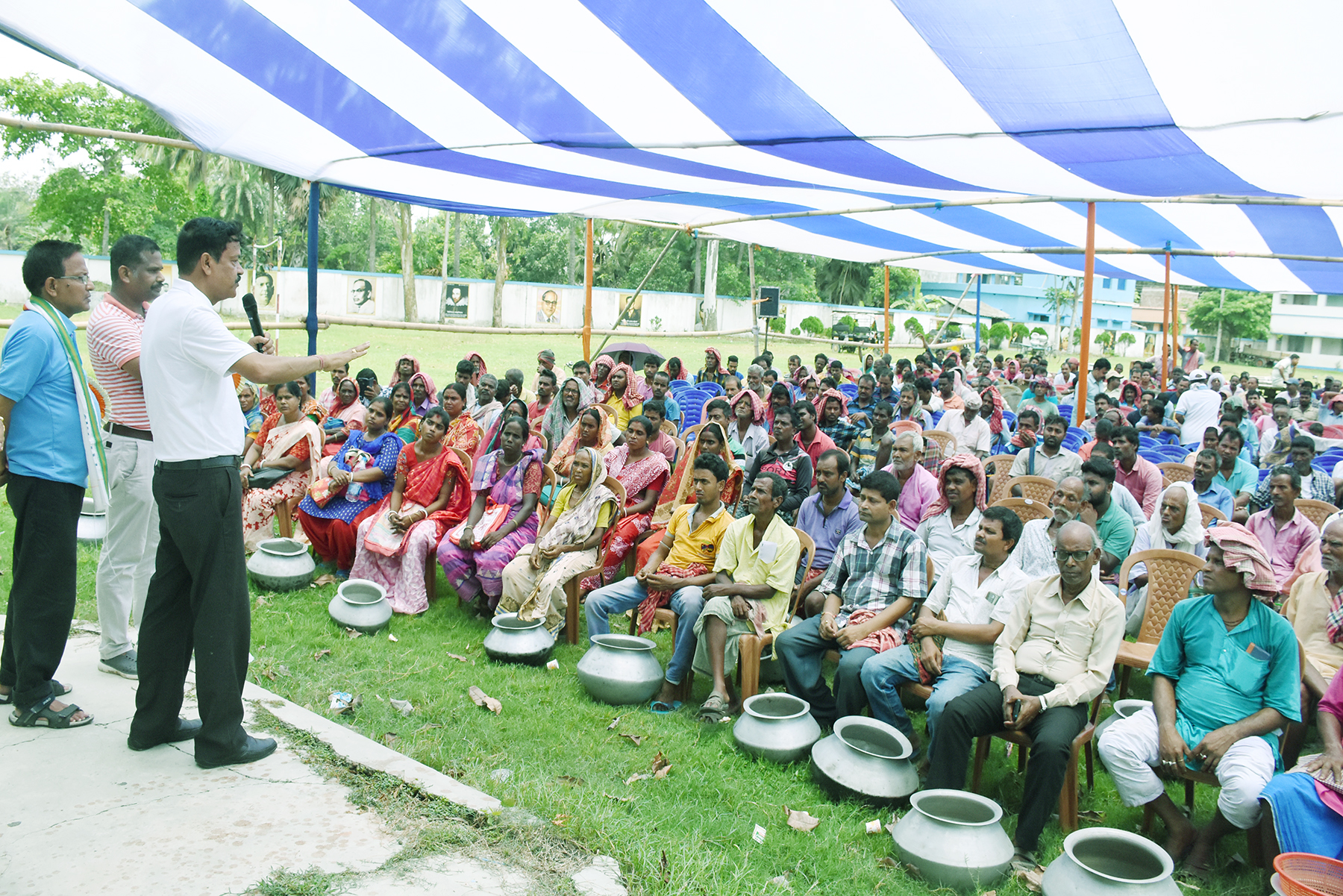 Also, the rural women are empowered by practicing the Ornamental Fish farming technology with the technical support and inputs supplied by ICAR-CIFRI. These developmental activities were roll-out in November 2021 with an aim, toward the Hon’ble Prime Minister’s dream of “Doubling Farmers Income” and a target was set to generate approx. Rs. 2.0 crores with an investment of Rs. 32 lakhs in a cluster of 500 fishers of this area during one year. As the part of activities, 3.0 lakhs Nos of fish seed, 52.5 ton of fish feed and 10.0 ton of lime and 55 number of ornamental units were distributed among 555 number of people along with technical support, need-based advice. Also live demonstrations, mass awareness programs, and on-site training and capacity-building programs were arranged for them.
Also, the rural women are empowered by practicing the Ornamental Fish farming technology with the technical support and inputs supplied by ICAR-CIFRI. These developmental activities were roll-out in November 2021 with an aim, toward the Hon’ble Prime Minister’s dream of “Doubling Farmers Income” and a target was set to generate approx. Rs. 2.0 crores with an investment of Rs. 32 lakhs in a cluster of 500 fishers of this area during one year. As the part of activities, 3.0 lakhs Nos of fish seed, 52.5 ton of fish feed and 10.0 ton of lime and 55 number of ornamental units were distributed among 555 number of people along with technical support, need-based advice. Also live demonstrations, mass awareness programs, and on-site training and capacity-building programs were arranged for them.
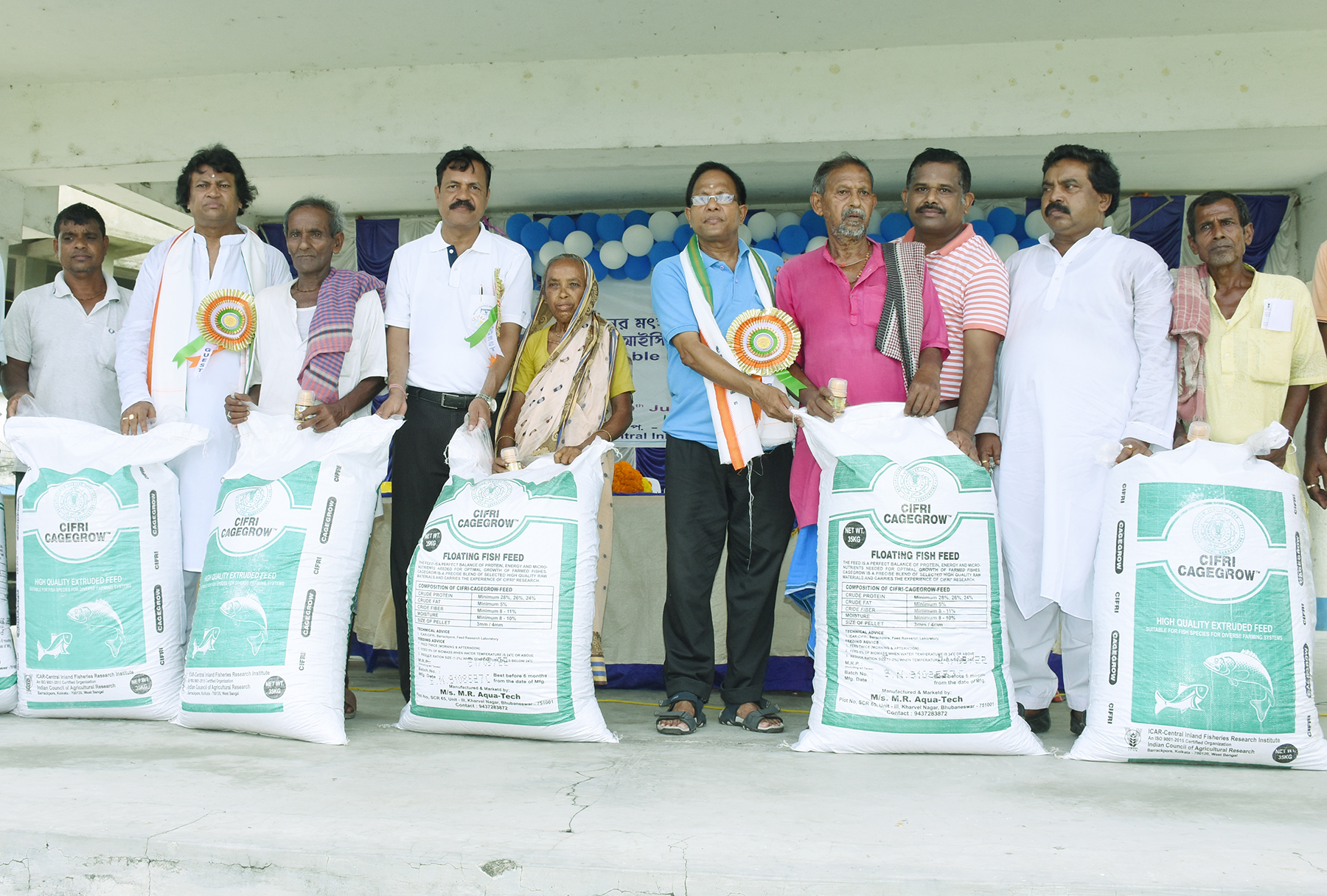 Within this six-month time (December, 2021 to May 2022), it is observed that, each household on an average already sold 100-150 kg fish with an income of Rs. 10,000-15,000/- within six month and they are having more than 60% of stock in their pond. So, it is expected that a total of 200-300 kg of fish will be harvested from the back-yard ponds with an anticipated average income of Rs. 22,000-30,000/-. It is expected that a total income of 1.25 crore will be generated from this cluster apart from the house hold consumption.
Within this six-month time (December, 2021 to May 2022), it is observed that, each household on an average already sold 100-150 kg fish with an income of Rs. 10,000-15,000/- within six month and they are having more than 60% of stock in their pond. So, it is expected that a total of 200-300 kg of fish will be harvested from the back-yard ponds with an anticipated average income of Rs. 22,000-30,000/-. It is expected that a total income of 1.25 crore will be generated from this cluster apart from the house hold consumption.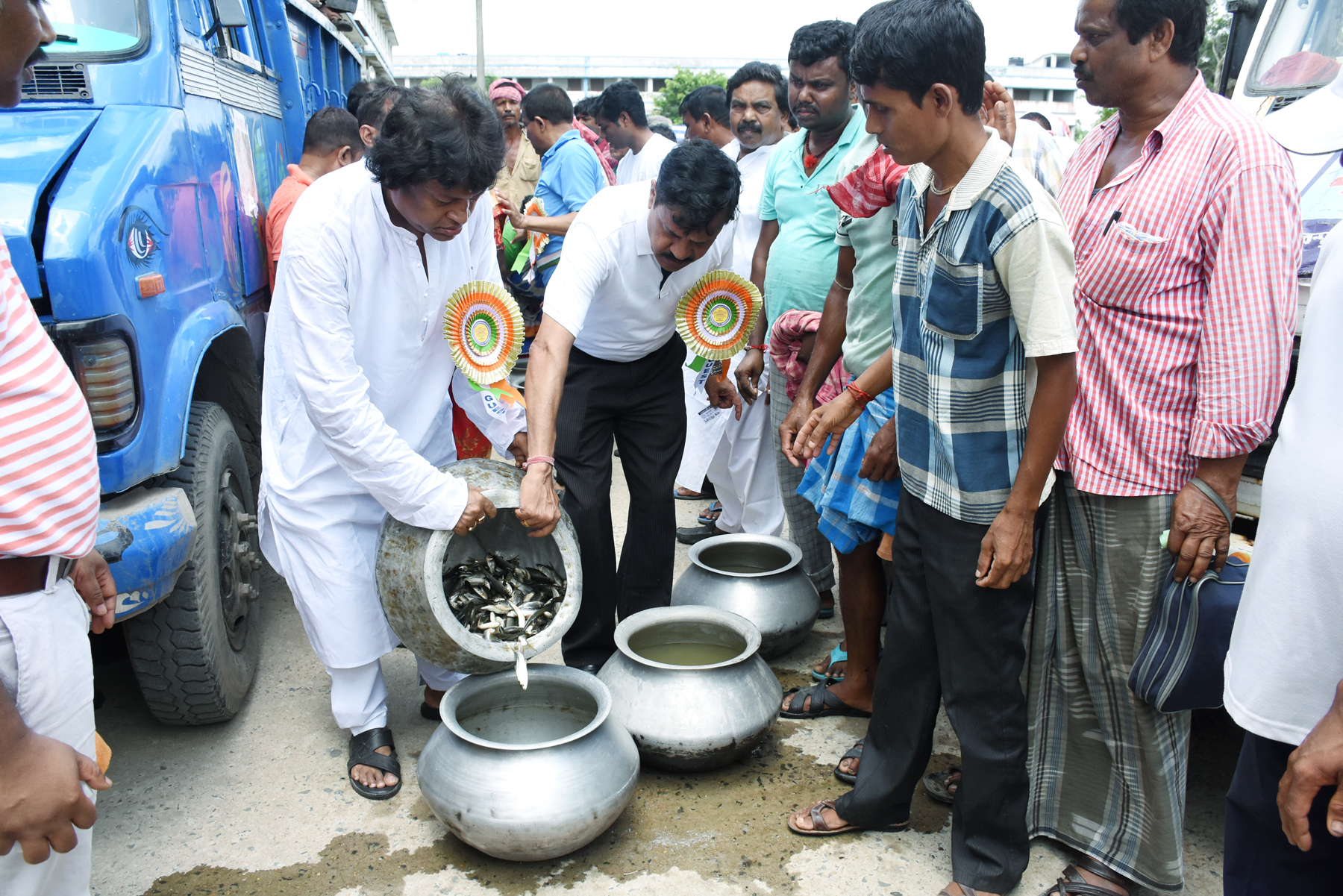 Continuing to this service, a mass awareness cum input distribution programme was arranged on 19-06-2022 at Kultoli. In the awareness meeting Dr. B. K. Das encouraged the fish farmers for the scientific fish farming and also cleared about their doubts on fish culture. He also suggested that out of the total profit, the fishers should keep some money as revolving fund for their own use in the back-yard pond culture. During this distribution programme 3.00 lakh of IMCs fish seeds, 35 ton
Continuing to this service, a mass awareness cum input distribution programme was arranged on 19-06-2022 at Kultoli. In the awareness meeting Dr. B. K. Das encouraged the fish farmers for the scientific fish farming and also cleared about their doubts on fish culture. He also suggested that out of the total profit, the fishers should keep some money as revolving fund for their own use in the back-yard pond culture. During this distribution programme 3.00 lakh of IMCs fish seeds, 35 ton 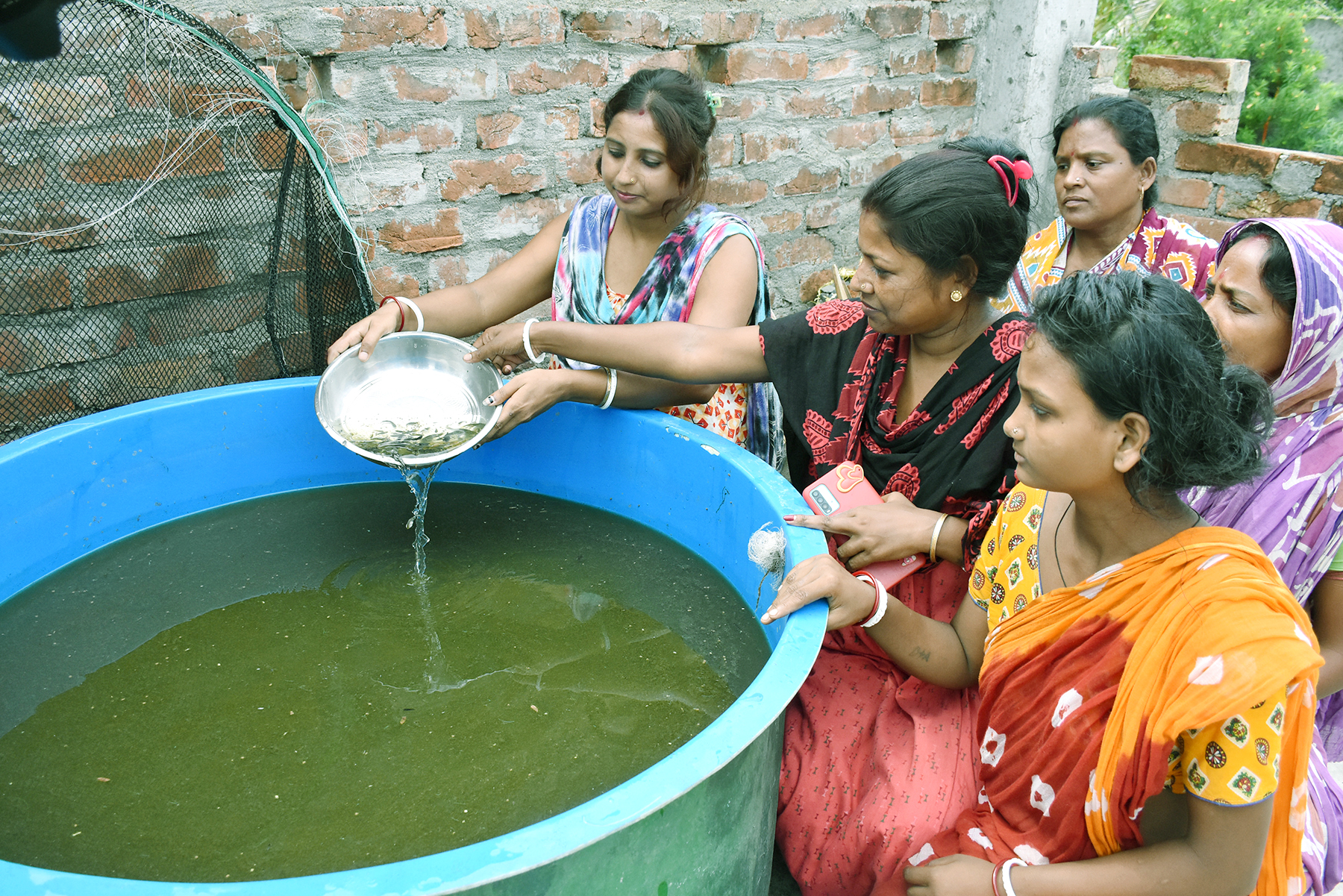 fish feed were distributed to 500 fish farmers. Each SC fishers were also provided 100 ml of fish medicine. ICAR-CIFRI also acknowledged the community mobilisation carried out of Milon Tirtha society. This programme was coordinated by Dr. P. K. Parida, Ms. P. R. Swain, Mr. Sujit Choudhury, Ms. S. Bhowmick, Dr. Shreya Bhattacharya, of ICAR-CIFRI and members of Milon Tirtha Society, Kultoli.
fish feed were distributed to 500 fish farmers. Each SC fishers were also provided 100 ml of fish medicine. ICAR-CIFRI also acknowledged the community mobilisation carried out of Milon Tirtha society. This programme was coordinated by Dr. P. K. Parida, Ms. P. R. Swain, Mr. Sujit Choudhury, Ms. S. Bhowmick, Dr. Shreya Bhattacharya, of ICAR-CIFRI and members of Milon Tirtha Society, Kultoli.










